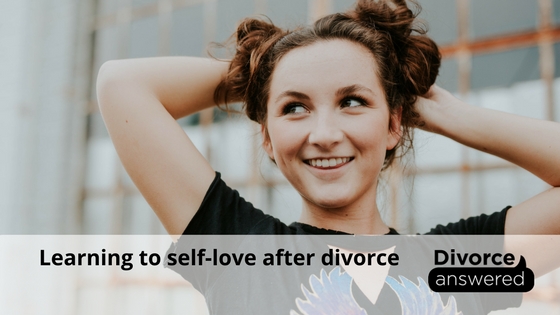
Often people leave their marriage feeling broken, bruised and bashed-about. They struggle with confidence as a parent, partner and as a person. Often, they have lost their self-value. Somehow and in some way, they need to find themselves, see their worth and love themselves. Rachael Scharrer, founder of online resource, DivorceAnswered.com.au, has learned about the importance of self, finding oneself and loving oneself.
Women can appreciate how their body changes during pregnancy and after having a child. There are stretch-marks, the chest is not always in as good a form as before breast-feeding, the stomach isn’t as firm, perhaps there is a C-section scar. While we may not like the changes to our post-baby body, it tells of a beautiful story and the signs of a beautiful child.
Similarly, the end of a marriage, the separation and divorce takes a toll on us. While we may not have physical scars, we often carry around significant emotional scars. We become hyper-sensitive to certain buttons being pushed, often over-reacting. For some, they question their ability as a parent, partner and friend.
Self-love is about looking in the mirror, not loving everything we see, yet appreciating the trials and triumphs encountered along our life-path. The journey was possibly fraught with challenges – perhaps you were constantly put down, had feelings of abandonment, were abused. These have all been a part of life, constantly testing and teaching us to recognise the signs and make the best decision for ourselves. Self-love is also about being happy with who we are and having the respect and care for ourselves that we deserve and being authentically aware of who we are and what we deserve.
When we are self-loving, we are:
One of the challenges is working out how to get there… when we feel like damaged-goods, how can we start to love ourselves?
The above actions collectively become a habit – it isn’t a practice done once. By often and regularly exercising acceptance, forgiveness and growth, self-love becomes a part of our every day activities and way of life.
Some people may need more assistance in the process to self-love. A psychologist, spiritual healer or skilled therapist can help to guide you along your path to self-discovery and self-love.
Sadly, some people struggle with self-love. This can be evident in poor choices, destructive behaviours, self-harm, addictive behaviours, anger/aggression issues and mental health or depression. When we love ourselves, we make better choices for our livelihood – even though we may not like doing what we have to (like attending rehab or abstaining from certain substances, curbing out tongue), we understand that it is for our own benefit and make the effort to work with organisations, people and items which will help us for our own good.
Ultimately, when we are self-loving individuals, we have a realistic sense of self-confidence, strong sense of self-worth (what we have and deserve and how intrinsically valuable we are) and overall positive sense of wellbeing. Self-loving individuals understand that it isn’t a state of being, it is a state of action – actively loving and accepting.